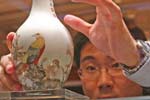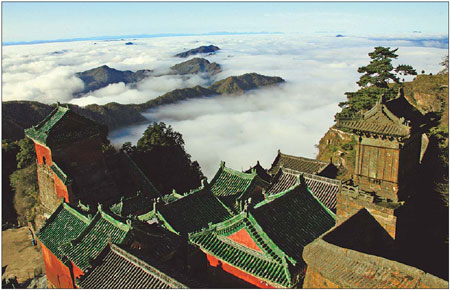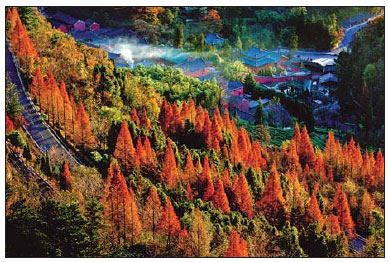Tips and Articles
Wudang epiphany
Updated: 2011-04-07 08:06
By Raymond Zhou (China Daily)
|
Overlooking a sea of clouds, Golden Temple is a peak attraction of Wudang Mountains in Hubei province. Provided to China Daily |
When the New York-based hip-hop group Wu-Tang Clan burst on the scene in early the 1990s, I was scratching my head as to what the name meant. It must be Chinese, I thought. But this was the era before Wikipedia, so I gave up after asking a few people around me and being met with shrugs.
Years later, when I was passing the archway entrance to Wudang Mountains, the epiphany finally dawned on me: It was Wudang, the old spelling, or the Hong Kong spelling. Martial arts of the Wudang style or clan have been dramatized in hundreds of films. I wonder whether the Wu-Tang Clan members knew there is actually a real place of their namesake and what would go through their minds if they stood in front of the Golden Temple on top of the Heavenly Pillar Peak.
On the day I was there, it was elbow to elbow, and I was concentrating on not bumping into the next person. People were jostling for photo-taking positions. There was no way you could clear the background for a picture. From whatever angle you shot, it would be a group photo. So, I turned around for a bird's-eye view of the structures. But clouds started rolling in. Pretty soon, I was feeling like the Taoist monks who were here hundreds of years ago striving for a moment on cloud nine.
Wudang is a Taoist mecca. Inside the Purple Cloud complex, men in black or white coats and black pants were practicing tai chi. There were quite a few Caucasians among them. The deliberate movements seemed to be in step with the billowing smoke that wafted out of the giant incense burner atop a long flight of stone stairs. A Taoist monk in a black silk coat, with a white beard, was offering a fortune-telling service while thumbing through several volumes of Taoist scriptures.
|
The Purple Cloud complex in Wudang Mountains. Provided to China Daily |
You'd better not ask him his age. While Western custom dictates women be spared this question, Taoist monks enjoy this privilege because their ultimate goal is immortality and age is a reminder of mortality. And unless you are a close friend, you should not ask why or how he took on the religion.
There is one person whose tale is known to all, though. He is the mythological Great Emperor Zhenwu, for whom the mountains are named. (It's the same "wu", and the word "dang" is from a phrase roughly meaning: "Only Zhenwu fits the place".)
Myth has it that on the west horizon of the ocean there is a kingdom where peace and goodness rule. One day the empress was strolling in the imperial garden when heaven opened a gate out of which the sun was thrown down. It turned into a red fruit and flew down her throat. That became her version of an immaculate conception.
Specials

Share your China stories!
Foreign readers are invited to share your China stories.

Art auctions
China accounted for 33% of global fine art sales.

Waiting for drivers' seat
Lack of sponsorship appears to be why Chinese drivers have yet to race in a Formula 1 event

